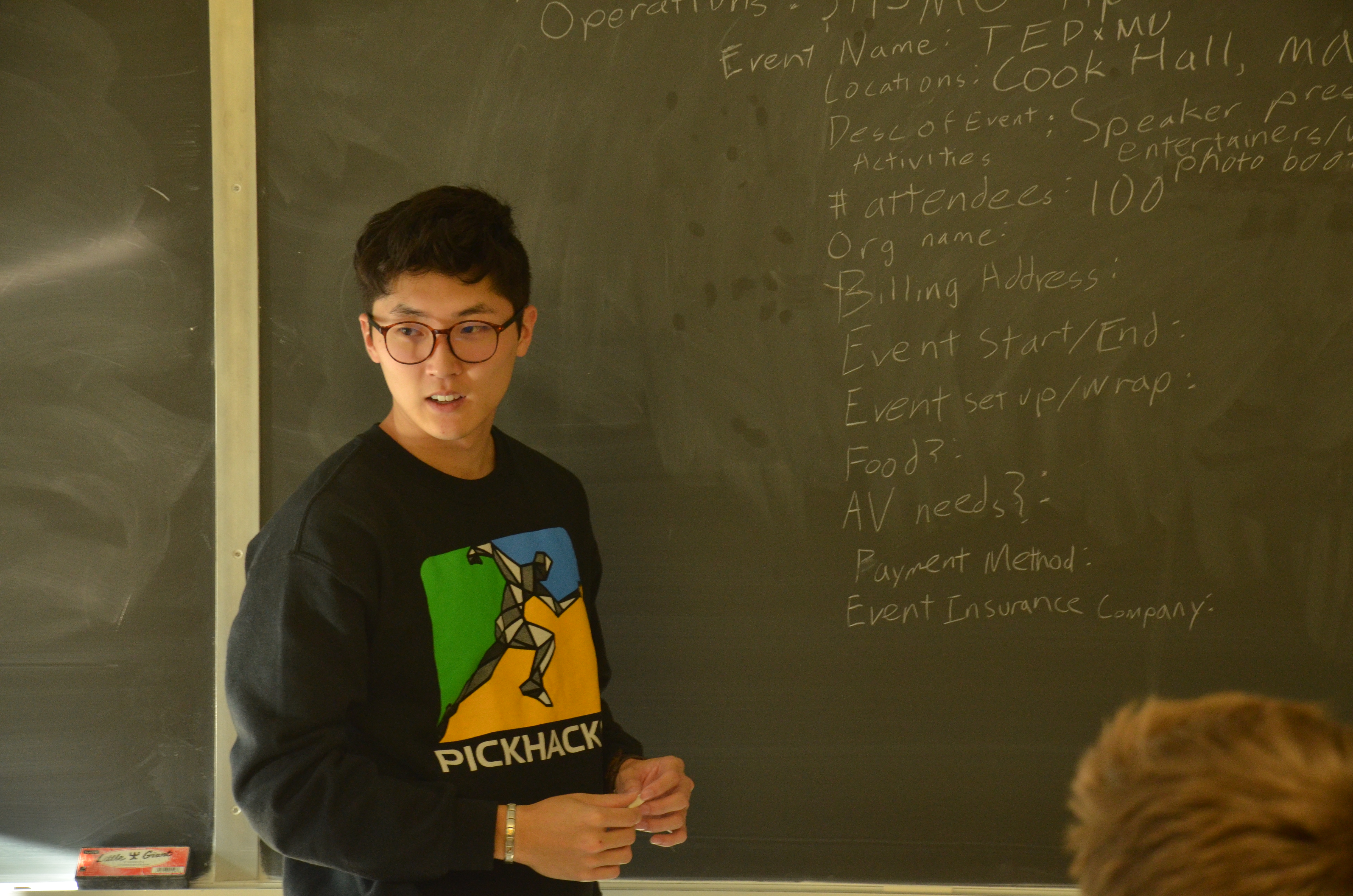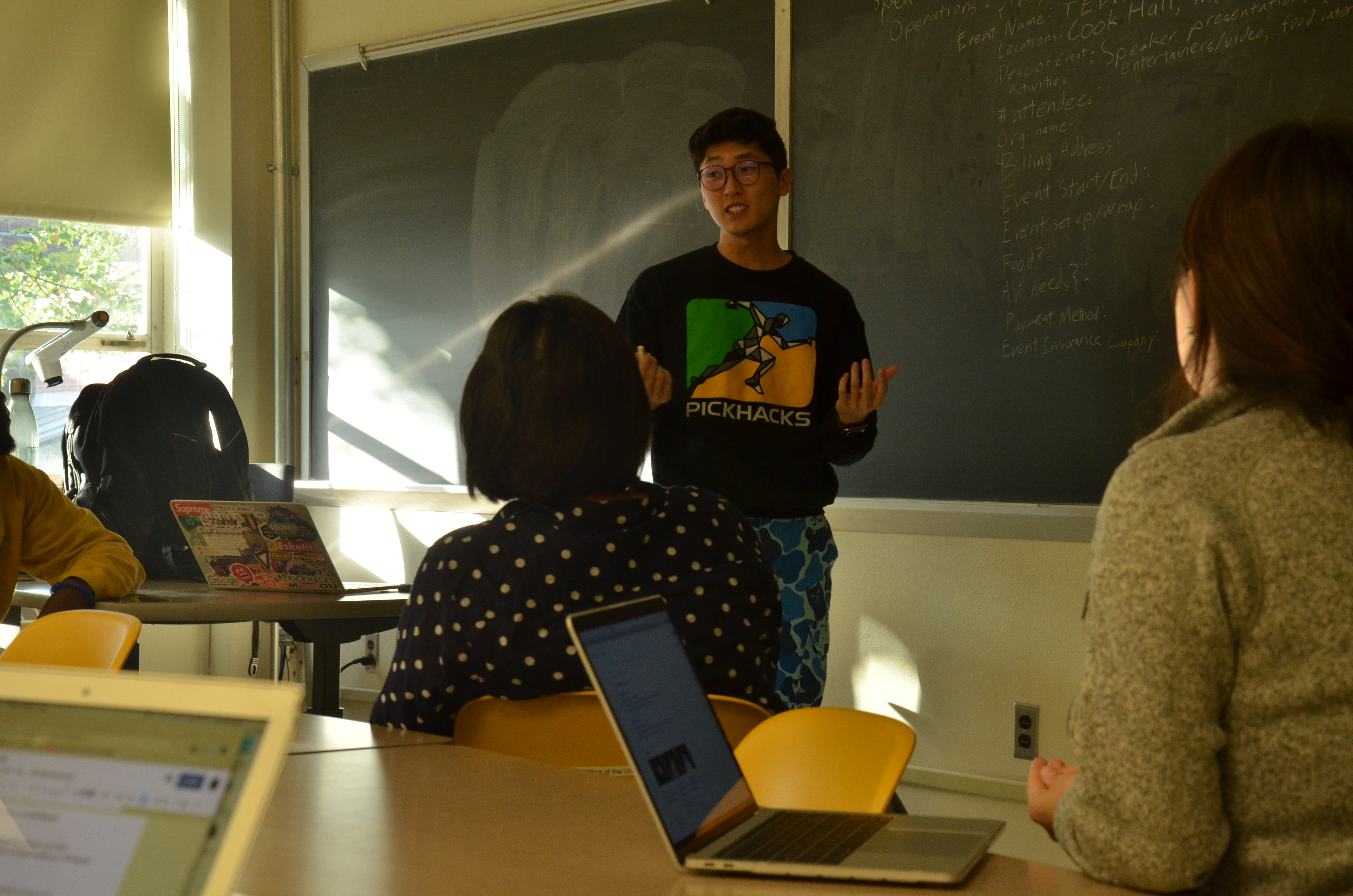Beginnings
When I matriculated at Mizzou, I was thrilled at the vast opportunities offered around campus for students. However, I saw that the last TEDx program was in 2017 spring, before I matriculated. Upon reaching out to its director, I found that he had no plans to direct another, leaving a rich niche to be filled given that other universities have had successful TEDx programs. So, I offered to take up the role and he would advise.
Process
I vividly remember that the first meeting attracted about 30 people, which was more than room capacity and left some standing throughout the meeting. I shared with them my vision, which was to engage the audience and spark conversations about pressing issues from a variety of fields. I was particularly interested in how this talk may be impactful for 2020, an election year.
I took the director role and put together the master schedule and team roles, modeled off of other TEDx university teams. The event was set to be in April for four hours at Leadership Auditorium at the Student Center. I checked in with team members regularly to ensure meeting deadlines. We met with various organizations and individuals around campus, from Greek life to the Vice Chancellor of Student Affairs, to market the event and attract guests and speakers. I also reached out to the medical school, who distributed my speaker call among faculty and staff, since I wanted to bring at least one healthcare speaker.
Throughout this process, I also applied for TEDx to be a student organization, because we still did not have legitimacy. The Office of Student Engagement halted our application process and instead offered to house us under them as a University program, providing funding and administrative support. They were just as excited as the team, because they had been thinking about organizing a TEDx event as well. So, we easily accepted.
We received over 70 applications for 12 speaker positions. I was beyond thrilled at our vast reach and received interest, and continued to set up other minutiae of the event, such as catering, livestream crew, photographer, and VIP dinner.
Then the national lockdown hit.
Show-Me Futures
The lockdown started in March 15, 2020 and it was easy to recognize that we would have to postpone the event to next spring. While speaking with the team about this disappointing news, I found that we all still wanted to produce something in its stead, especially one that would address the COVID-19 pandemic. I decided that we could produce podcast series without the TEDx licensing. The idea was similar to TEDx’s- providing a platform for locals to discuss big ideas.
Over the next few months, we produced the Show-Me Futures podcast series with four episodes, each in a theme of medicine, education, research, and economy. This production was entirely student-led, with approval and marketing roles taken by the University. I hosted and edited “Medicine during a pandemic.”
The podcasts were structured so that one team member would be the host asking the questions while an expert moderator and two professionals in the field discussed the answer. I was honored to speak with Dr. Christy Wilson Bowers, Dr. Soophia Naydenov, and Liz Ellison to discuss how COVID-19 was impacting Missouri hospitals and how they surmise that these hospitals will change after the pandemic.
I am immensely proud of the team for undertaking a novel, challenging task in such short notice.
Read the article about this here: TEDxMU to delay event, air virtual panels on COVID-19 instead



